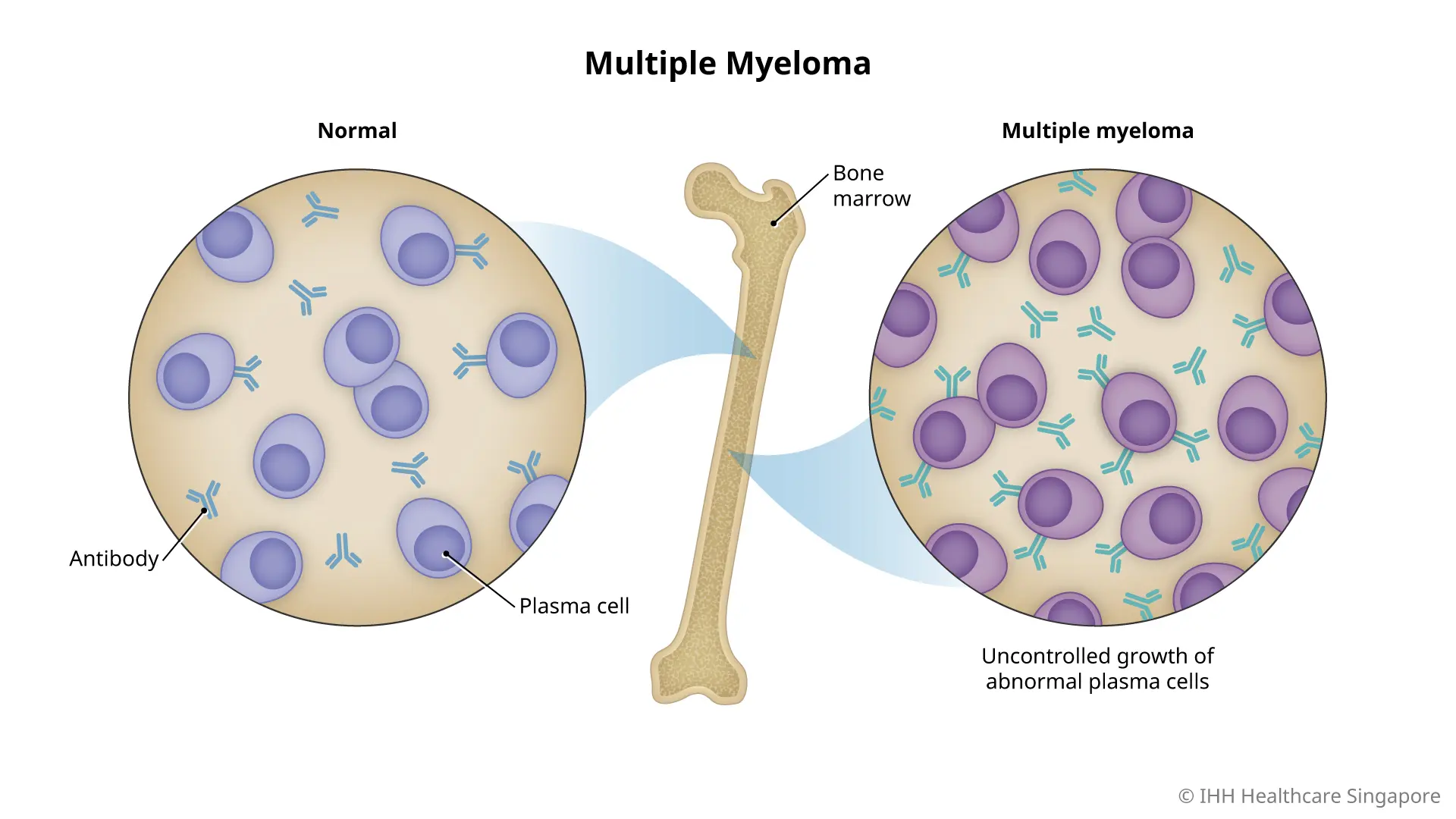-
-
Featured Care Areas

Multiple Myeloma
What is multiple myeloma?
Multiple myeloma is a type of cancer that originates in the plasma cells, a kind of white blood cell found in the bone marrow. Plasma cells are crucial for the immune system as they produce antibodies that help fight infections. In multiple myeloma, these cells proliferate uncontrollably and accumulate in the bone marrow, leading to various health issues.
Types of multiple myeloma
Multiple myeloma can be classified into several types, based on the type of immunoglobulin produced by the cancer cells:
- IgG myeloma, the most common form, accounting for about 60% of cases
- IgA myeloma, the second most common, comprising about 20% of cases
- Light chain myeloma, the third most common, only light chains of antibodies are produced
- IgD, IgE, and IgM myeloma, which are much rarer
- Non-secretory myeloma, where no immunoglobulin is produced
What are the symptoms of multiple myeloma?
Symptoms of multiple myeloma may vary widely but typically include:
- Bone pain, especially in the back or chest
- Frequent infections due to weakened immune response
- Anaemia leading to fatigue and weakness
- Kidney dysfunction
- Hypercalcemia (high calcium levels), causing excessive thirst, nausea, and confusion
- Weight loss and reduced appetite
What causes multiple myeloma?
The exact cause of multiple myeloma is not fully understood, but several risk factors have been identified:
- Age (most common in people over 60)
- Male gender
- Family history of the disease
- Obesity
- Exposure to certain chemicals or radiation
How does multiple myeloma form?
Multiple myeloma begins with a genetic mutation in a single plasma cell. This mutation allows the cell to multiply rapidly and resist normal cell death processes. Over time, these malignant plasma cells crowd out healthy cells in the bone marrow, leading to the symptoms and complications associated with the disease.
What are the complications and related diseases of multiple myeloma?
Complications of multiple myeloma can be severe and include:
- Bone damage and fractures
- Increased susceptibility to bacterial infections
- Reduced kidney function or kidney failure
- Anaemia and other blood disorders
- Hypercalcemia, which can affect heart and kidney function
Related conditions include:
- Amyloidosis, where abnormal protein builds up in organs
- Light chain deposition disease, affecting kidneys, heart, or liver
How do you prevent multiple myeloma?
There are no established methods for preventing multiple myeloma due to its unclear causes. However, maintaining a healthy lifestyle, avoiding exposure to toxic chemicals, and managing risk factors such as obesity may help reduce the risk.
This coverage checker is brought to you by Health Insured, an online resource that helps you understand your health coverage in Singapore.
This page has been reviewed by our medical content reviewers.
Need help?
For enquiries, please call
+65 6575 7575
For appointment bookings, please WhatsApp
+65 8111 9777




